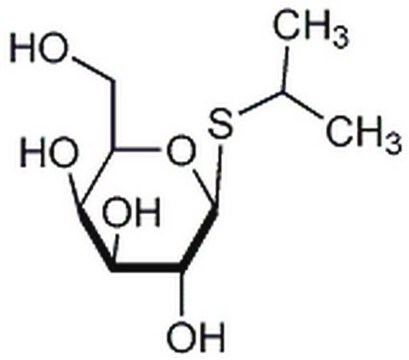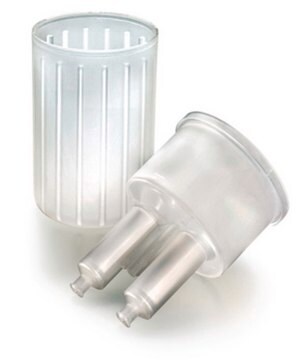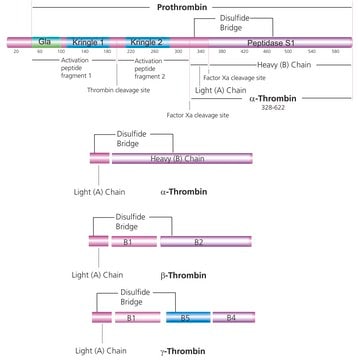MABF2237
Anti-NKp30 (CD337) Antibody
About This Item
ICC
IP
WB
activity assay
flow cytometry: suitable
immunocytochemistry: suitable
immunoprecipitation (IP): suitable
western blot: suitable
Prodotti consigliati
Origine biologica
mouse
Livello qualitativo
Coniugato
unconjugated
Forma dell’anticorpo
purified antibody
Tipo di anticorpo
primary antibodies
Clone
1C01, monoclonal
PM
calculated mol wt 24.93 kDa
observed mol wt ~32 kDa
Reattività contro le specie
human
Confezionamento
antibody small pack of 100 μL
tecniche
activity assay: suitable
flow cytometry: suitable
immunocytochemistry: suitable
immunoprecipitation (IP): suitable
western blot: suitable
Isotipo
IgG2aκ
N° accesso UniProt
Condizioni di spedizione
dry ice
Temperatura di conservazione
-10 to -25°C
modifica post-traduzionali bersaglio
unmodified
Informazioni sul gene
human ... NCR3(259197)
Descrizione generale
Specificità
Immunogeno
Applicazioni
Evaluated by Western Blotting in Human spleen tissue lysate.
Western Blotting Analysis: A 1:1,000 dilution of this antibody detected NKp30 (CD337) in Human spleen tissue lysate.
Tested Applications
Western Blotting Analysis: A 1:1,000 dilution from a representative lot detected NKp30 (CD337) in Human tonsil tissue lysate.
Function Analysis: A representative lot of this antibody blocked the binding of NKp30-Fc to β-1,3-Glucan and reduced Nkp30 clustering. (Li, S.S., et. al. (2018). Nat Commun. 9(1):751; Li, S.S., et. al. (2013). Cell Host Microbe. 14(4):387-97).
Western Blotting Analysis: A representative lot detected NKp30 (CD337) in Western Blotting applications (Li, S.S., et. al. (2018). Nat Commun. 9(1):751; Li, S.S., et. al. (2013). Cell Host Microbe. 14(4):387-97).
Immunoprecipitation Analysis: A representative lot immunoprecipitated NKp30 (CD337) in Immunoprecipitation applications ( Li, S.S., et. al. (2013). Cell Host Microbe. 14(4):387-97 ).
Flow Cytometry Analysis: A representative lot detected NKp30 (CD337) in Flow Cytometry applications (Li, S.S., et. al. (2018). Nat Commun. 9(1):751; Li, S.S., et. al. (2013). Cell Host Microbe. 14(4):387-97).
Immunocytochemistry Analysis: A representative lot detected NKp30 (CD337) in Immunocytochemitry applications (Li, S.S., et. al. (2013). Cell Host Microbe. 14(4):387-97).
Note: Actual optimal working dilutions must be determined by end user as specimens, and experimental conditions may vary with the end user
Stato fisico
Stoccaggio e stabilità
Altre note
Esclusione di responsabilità
Non trovi il prodotto giusto?
Prova il nostro Motore di ricerca dei prodotti.
Codice della classe di stoccaggio
12 - Non Combustible Liquids
Classe di pericolosità dell'acqua (WGK)
WGK 2
Punto d’infiammabilità (°F)
Not applicable
Punto d’infiammabilità (°C)
Not applicable
Certificati d'analisi (COA)
Cerca il Certificati d'analisi (COA) digitando il numero di lotto/batch corrispondente. I numeri di lotto o di batch sono stampati sull'etichetta dei prodotti dopo la parola ‘Lotto’ o ‘Batch’.
Possiedi già questo prodotto?
I documenti relativi ai prodotti acquistati recentemente sono disponibili nell’Archivio dei documenti.
Il team dei nostri ricercatori vanta grande esperienza in tutte le aree della ricerca quali Life Science, scienza dei materiali, sintesi chimica, cromatografia, discipline analitiche, ecc..
Contatta l'Assistenza Tecnica.






